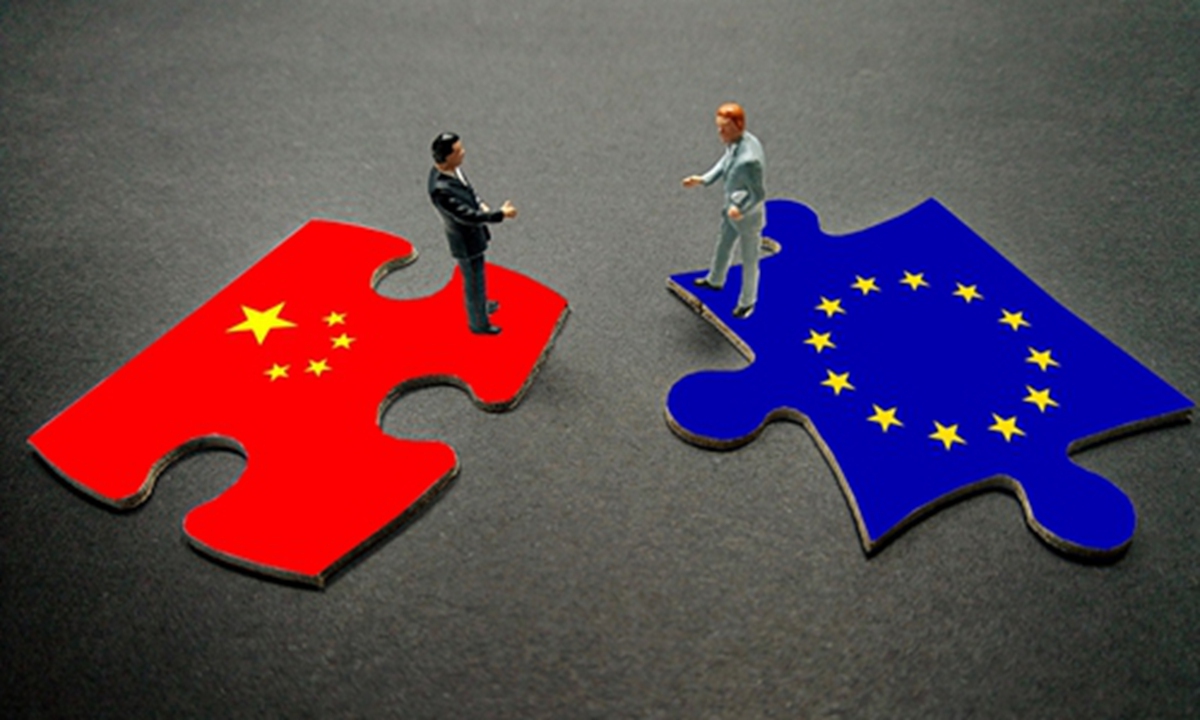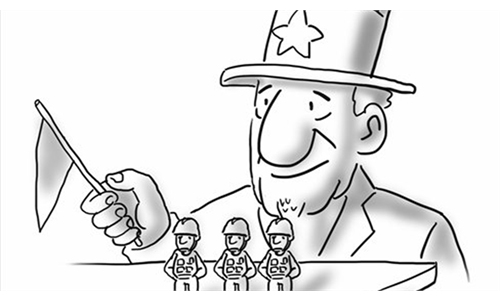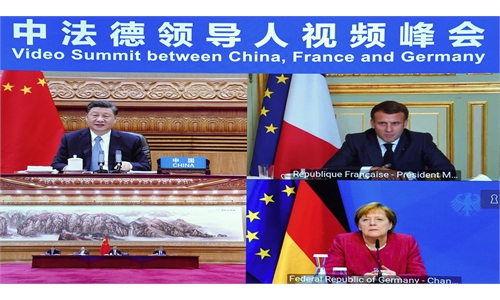COMMENTS / EXPERT ASSESSMENT
EU should play a constructive role in Indo-Pacific to avoid tension with China

File photo
The EU on Monday adopted a strategic plan to increase its influence in the Indo-Pacific region, pledging to recommit to the region's stability, security and prosperity based on the promotion of democracy, rule of law, human rights and international law.Although EU diplomats reportedly stressed that the plan was not "anti-China", it is still deemed as a reinforcement of a strategic focus to counter China's rising profile in the region. The plan could mean a higher EU diplomatic involvement in Indo-Pacific issues, more EU personnel and investment in the region and possibly a greater security presence, according to Reuters.
Objectively speaking, some issues do exist between China and some regional countries such as China-India border tension. However, such issues should be resolved by involved countries through bilateral negotiations. Third-party intervention may sabotage the atmosphere of bilateral negotiations, and sometimes even complicate the situation.
If the EU wants to expand its influence in the Indo-Pacific region, it should play a constructive role. The EU should follow its pledge to take concrete efforts to help regional countries solve issues and achieve stability, prosperity and sustainable development, rather than playing geopolitical games by imposing rules on countries in the region, which is neither reasonable nor legal.
In the Indo-Pacific plan, the EU also stressed the importance to strengthen its strategic trade position in the region. While the EU said that it will continue to promote and deepen trade and investment exchanges with regional countries such as Japan, India and Australia, it also noted its aim to take further steps toward the Comprehensive Agreement on Investment with China.
The EU's Indo-Pacific plan comes as European attitudes harden against China over the latter's internal affairs regarding Hong Kong and Xinjiang. The EU should avoid letting the issue disrupt economic cooperation, which is posing a test for both sides now.
Since the EU chose to stir up tension with China on human rights issues, public opinion at home and abroad has dimmed when it comes to the future of China-EU relations. In the short term, there seems to be more problems in the relationship, with differences in the political and security fields on the rise; but in the long term, consensus between China and the EU is far greater than differences, and cooperation far exceeds confrontation.
At this juncture, it is necessary for both parties to take a more rational and objective view of the importance of their bilateral relationship in maintaining regional and global stability. Both parties should find a more rational way of getting along with each other based on common interests. In particular, the two sides should avoid political and security issues that threaten economic cooperation.
The article was compiled based on an interview with Cui Hongjian, director of the Department of European Studies at the China Institute of International Studies. bizopinion@globaltimes.com.cn


